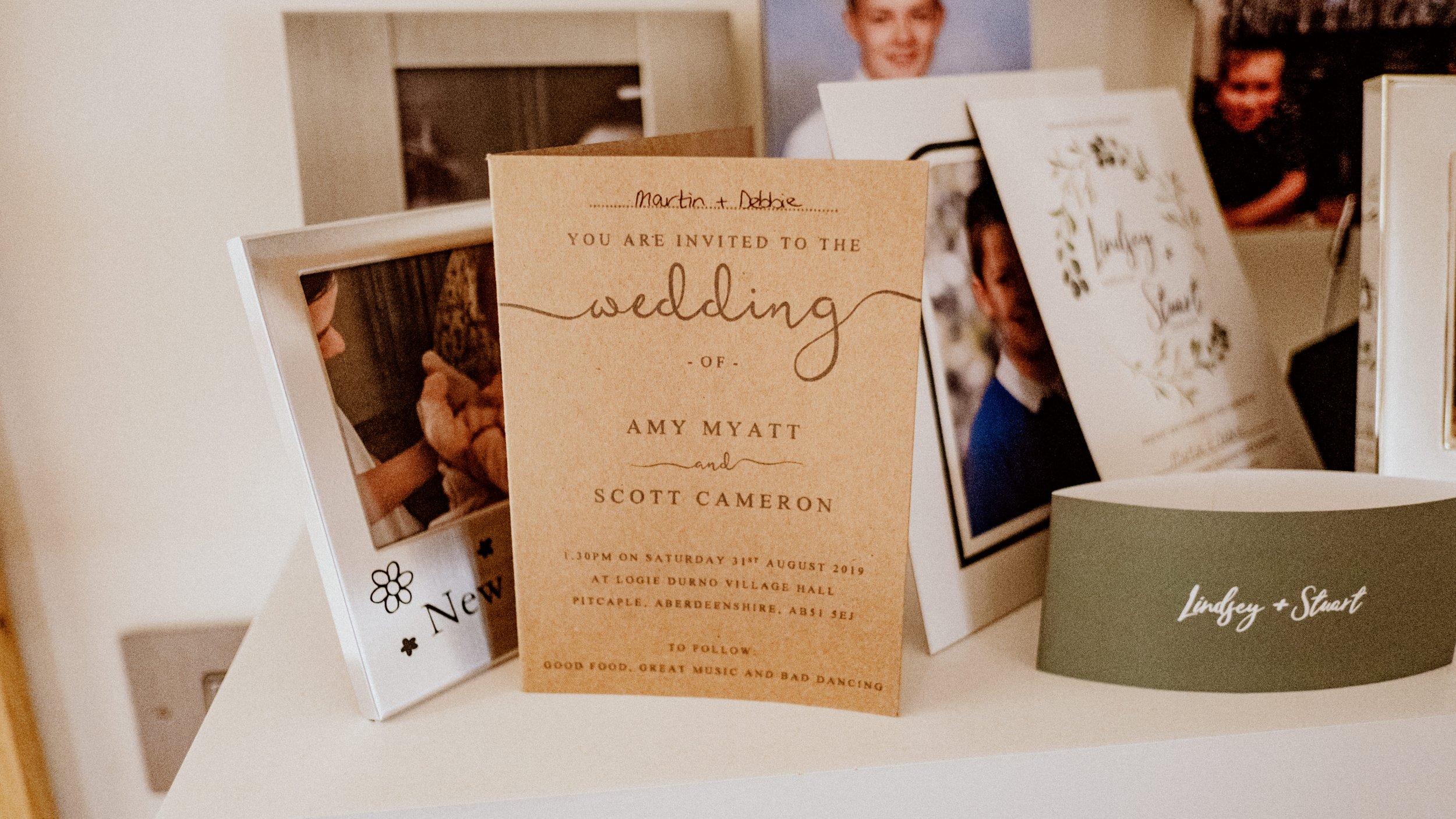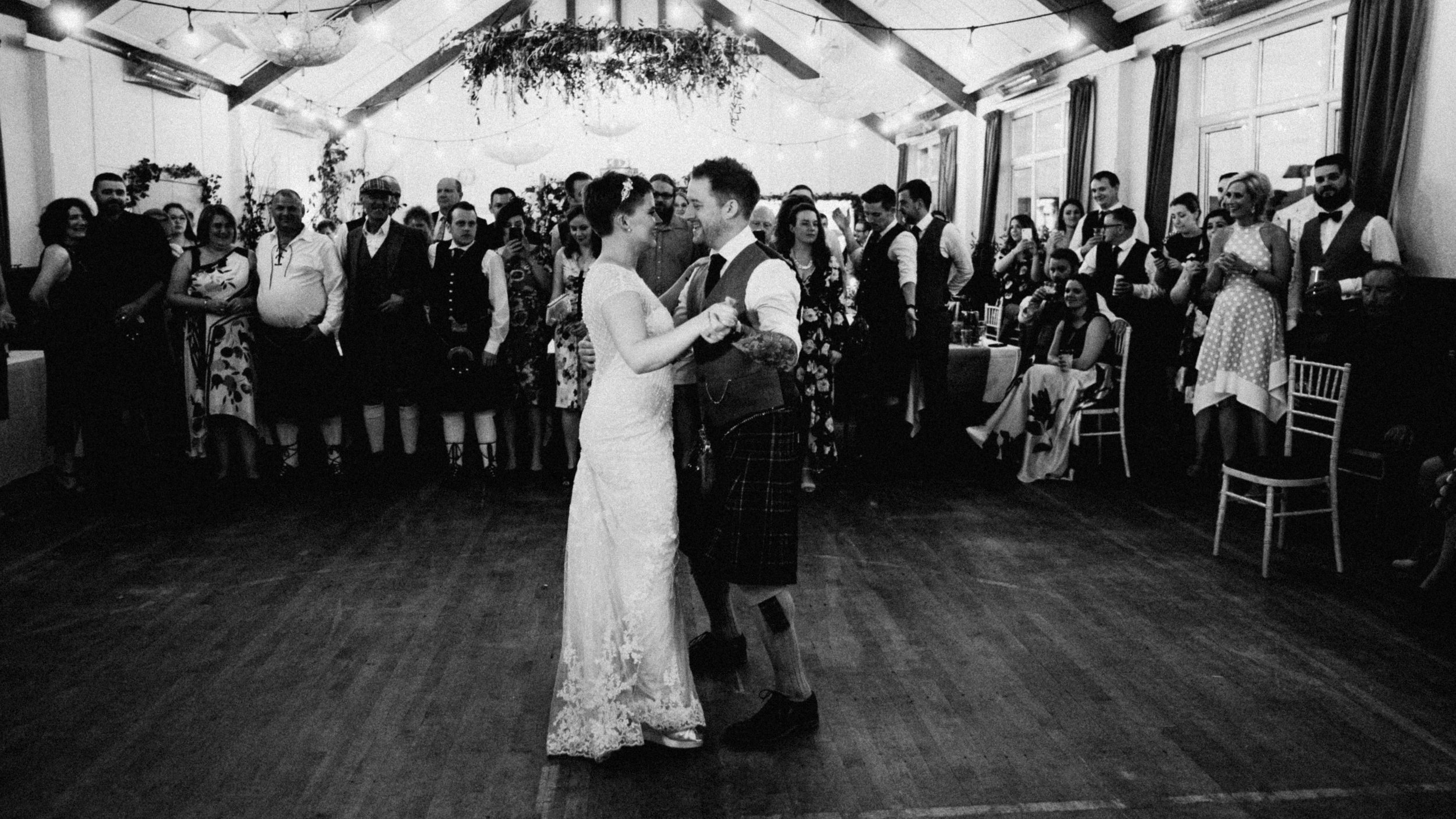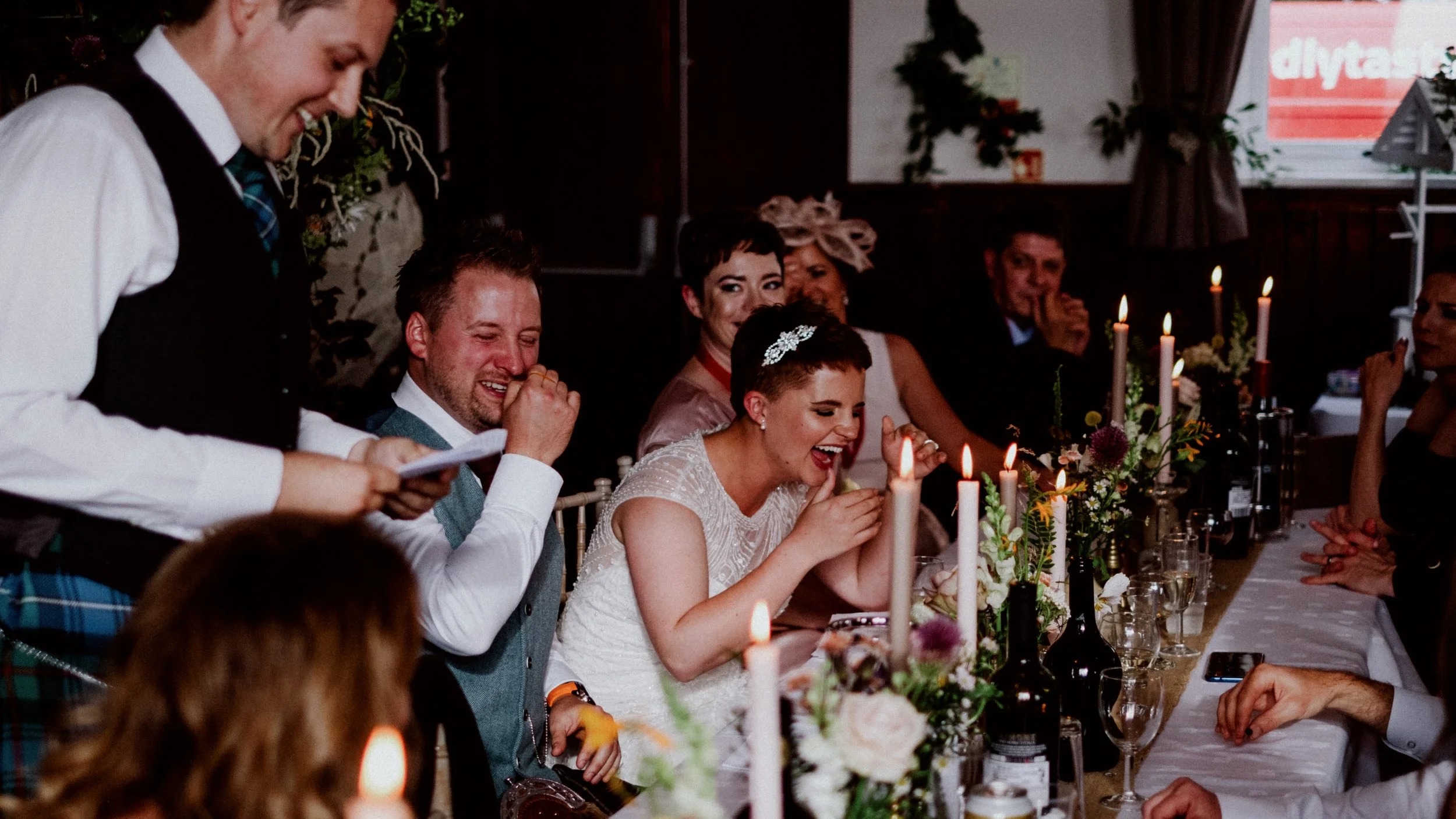Introduction:
Are you dreaming of a rustic, budget-friendly wedding in the UK? A village hall wedding might be the perfect choice for you. In this guide, we'll walk you through everything you need to know to plan a DIY wedding in a village hall, with inspiration from Scott and Amy's beautiful Scottish village hall wedding.
1. Choosing the Perfect Village Hall for your wedding
Location Matters: When selecting a village hall for your wedding, consider the location carefully. Think about the convenience of the venue for you and your guests. Is it close to your home or the ceremony site? Is there ample parking or public transportation nearby? Also, contemplate the surrounding area. A picturesque countryside or quaint village can add to the charm of your wedding day.
Availability and Booking: Village halls can be popular venues, so securing your preferred date is essential. Start your search well in advance and be flexible with dates if possible. Once you've found the right venue, make sure to book it as soon as possible to avoid disappointment.
Budget-Friendly Options: Village halls are often more budget-friendly than traditional wedding venues. They offer flexibility in terms of decor, catering, and services, allowing you to tailor your wedding to your budget. Consider weekday or off-peak season weddings for additional cost savings.
2. Setting the Date and Invitations
Selecting the Date: Choose a wedding date that is meaningful to you. Be aware of peak wedding seasons in your area, as they may affect availability and pricing. Additionally, consider any holidays or special anniversaries that could make your day even more special.
Creating Invitations: DIY wedding invitations can be both personal and cost-effective. If you're not the crafty type, there are numerous online services that allow you to design and order custom invitations that match your theme and colors.
RSVPs and Guest List: Managing your guest list is crucial. Create a system for RSVPs, and make sure to follow up with guests who haven't responded by the deadline. This will help you finalize catering and seating arrangements.
3. Decor and Theme Selection
Village Hall Decor: Village halls often have a neutral and simple aesthetic, making them a blank canvas for your creative ideas. Decorate the space with elements that reflect your personality and wedding theme. Think about table centerpieces, hanging decorations, and lighting to create a warm and inviting atmosphere.
Choosing a Theme: Whether it's vintage, rustic, bohemian, or something entirely unique, selecting a theme will guide your decor choices. Your theme can influence everything from your color scheme to your choice of flowers and table settings.
DIY Decorations: Embrace your creativity and save money by crafting your own decorations. DIY projects can include handmade bunting, centerpieces, and personalized signage. Get friends and family involved for a fun pre-wedding bonding experience.
4. Catering and Bar Services
Catering Options: Decide whether you want to hire a professional caterer or handle the food yourself. Self-catering can save money, but it requires careful planning and preparation. If you opt for a caterer, make sure they are familiar with the village hall's facilities.
Bar Services: Depending on your guest list and preferences, you can set up a self-serve drink station or hire a mobile bar service. Ensure there's a variety of beverages to cater to all your guests' preferences, including non-alcoholic options.
Amy & Scott’s friends took turns to man the ‘bar’, everyone brought their own booze, there were bottles of whiskey (too many to count), Sloe Gin (homemade) and it was a free for all!
Food Safety: If you're self-catering, follow food safety guidelines. Keep perishables properly refrigerated and consider hiring a professional for any cooking or food preparation. Safety is paramount.
5. Entertainment and Music
Live Band vs. Playlist: Decide between a live band and a curated playlist. Live bands add a lively atmosphere, while playlists offer versatility and cost savings. Think about your music preferences and the ambiance you want to create.
DJ or No DJ: A DJ can help keep the party going with a curated selection of songs and can also manage the flow of the event. On the other hand, you can create your playlist and designate a friend as the DJ if you prefer a DIY approach.
First Dance Tips: Make your first dance unforgettable by choosing a song that holds special meaning for you and practicing a few dance moves in advance. Consider taking dance lessons together to ensure a polished performance. If you’re not dancers or hate being centre of attention, don’t have a first dance solo, just have a dance with everyone - pick a lively song and get the party started!
6. Logistics and Practical Considerations
Parking and Transportation: Consider the parking situation at the village hall and provide clear instructions to your guests. If the venue is in a remote location, consider arranging transportation or shuttle services to make it easier for guests to attend.
Seating Arrangements: Plan the seating layout to ensure comfort and flow. Create a seating chart that reflects the relationships and preferences of your guests, and clearly label each table.
Permits and Licenses: Ensure you have all the necessary permits and licenses for your wedding, including alcohol licenses if you're serving alcohol. Your village hall coordinator can provide guidance on these requirements.
7. Scott and Amy's Village Hall Wedding
Real Wedding Inspiration: Get inspired by these pictures from Scott and Amy's village hall wedding in Scotland. Their wedding showcases how a village hall can be transformed into a stunning and memorable wedding venue. From their décor choices to the ceremony setup, you'll find plenty of ideas to incorporate into your own celebration. Perhaps more relevant is look how much fun everyone is having.
8. Photography and Videography
Hiring Professionals: Professional photographers and videographers are essential to capture the moments and emotions of your wedding day. While your friends may take snapshots with their smartphones, professionals can provide high-quality, edited photos and videos that you'll cherish forever.
Choosing the Right Photographer: Take your time when choosing a photographer. Review their portfolio and ensure their style aligns with your vision. Meet with them in person to discuss your expectations and preferences.
Capturing Memories: Village hall weddings often offer unique photo opportunities. Utilize the hall's rustic charm and the surrounding village for memorable shots. Talk to your photographer about any specific locations or ideas you have in mind.
9. Timeline and Wedding Day Schedule
Planning the Day: Create a detailed timeline that outlines every aspect of your wedding day, from getting ready to the final farewell. Share this schedule with your wedding party, vendors, and venue staff to ensure everyone is on the same page.
Getting Ready: Plan the morning of the wedding carefully. Allow plenty of time for hair and makeup, and don't forget to capture these special moments with your photographer. Have a pre-wedding breakfast or brunch to relax and enjoy the morning with your wedding party.
Ceremony and Reception: Schedule your ceremony and reception with enough time for guests to arrive, enjoy pre-ceremony refreshments, and socialize. Coordinate with your officiant, caterers, and musicians to ensure a seamless flow.
10. Weather Contingency Plans
Outdoor Options: If you plan an outdoor component to your village hall wedding, have a backup plan in case of inclement weather. This could be a tent or indoor space that can be quickly transformed.
Tent Rentals and Canopies: Consider renting tents or canopies to provide shelter from sun or rain. Decorate them in line with your wedding theme to maintain the overall look and feel of your event.
11. Village Hall Wedding Checklist
A comprehensive checklist is essential for staying organized throughout the planning process. Include items like booking vendors, finalizing decor details, and tracking RSVPs. You can find downloadable wedding planning checklists online or create
Conclusion:
Planning a DIY wedding in a village hall can be a charming and cost-effective way to celebrate your love. With the right guidance, you can create a magical and memorable day like Scott and Amy did in their Scottish village hall. Embrace your creativity, stay organized, and don't forget to capture every moment. We hope this guide has been helpful in preparing you for a beautiful and unique village hall wedding in the UK.
Remember, every wedding is unique, and yours should reflect your individual style and personality. Best of luck on your journey to a perfect village hall wedding!
Don't forget to check out the stunning pictures from Scott and Amy's Scottish village hall wedding throughout this guide for inspiration.






























































